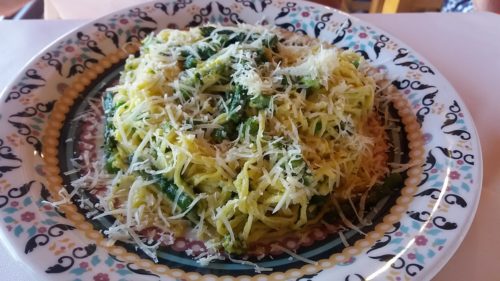THE FOOD,THIS STRANGER
The Genomic Diet 1st chapter. The food, this stranger
Food is a combination of nutrients from the plant and animal kingdoms and their derivatives. They maintain a person’s biological functions.
The food we eat have been selected by previous generations based on their availability, culture, and symbolism.
The food is almost always composed of these elements:
Carbohydrates (sugars and carbohydrates)
Lipids (fats)
Proteins (proteins) Fibers
Vitamins
Minerals
Enzymes
Water, carbohydrates, lipids, proteins, and fibers may be present in variable amounts up to hundreds of grams down to micrograms. Nutrients such as vitamins and minerals are present in the order of micrograms per kilogram of food.
When we digest food, the nutrients are broken down in various essential constituents. They are then assimilated by the organism for the production of energy to create new cells, for tissue repair, and for the production of enzymes, antibodies, and hormones.
The body gets the essential nutrients. Unknown nutrients are synthesized by the body itself. The body needs to cope with energy and plastic.
Carbohydrates and lipids provide energy. Proteins build and rebuild the body.
Every time we eat, we use a variety of chemical principles. Nobody thinks of this basic concept, but in many religions and in popular culture, it is of utmost importance to cultivate and slaughter live food.
The Chinese and the Japanese say that if a person eats swordfish or tuna for more than three consecutive days, the person becomes aggressive. The reason why is because of the brutal way in which the animal is often killed.
I believe that, by respecting tradition, we can derive benefits. We introduce the constituents that produce the changes in us.
For example, drugs may lead to a state of well-being or they can be toxic and cause side effects.
With new science, nutraceutical and nutrigenomics can even change the status of the human body due to the chemical characteristics contained or added in food.
The food, therefore, is not an integral part of the body. We introduce or provoke changes in our body whenever we eat food. Those changes can either be positive, negative or neutral
You must also take into account the constant changes that foods undergo each year. Plants evolve and change like we do. Environmental pollution alters the way they adapt. And there’s also food adulteration.
It is therefore important for the well-being of the person to take the necessary nutrients in the right season and combine foods properly.
Copyright 2018

